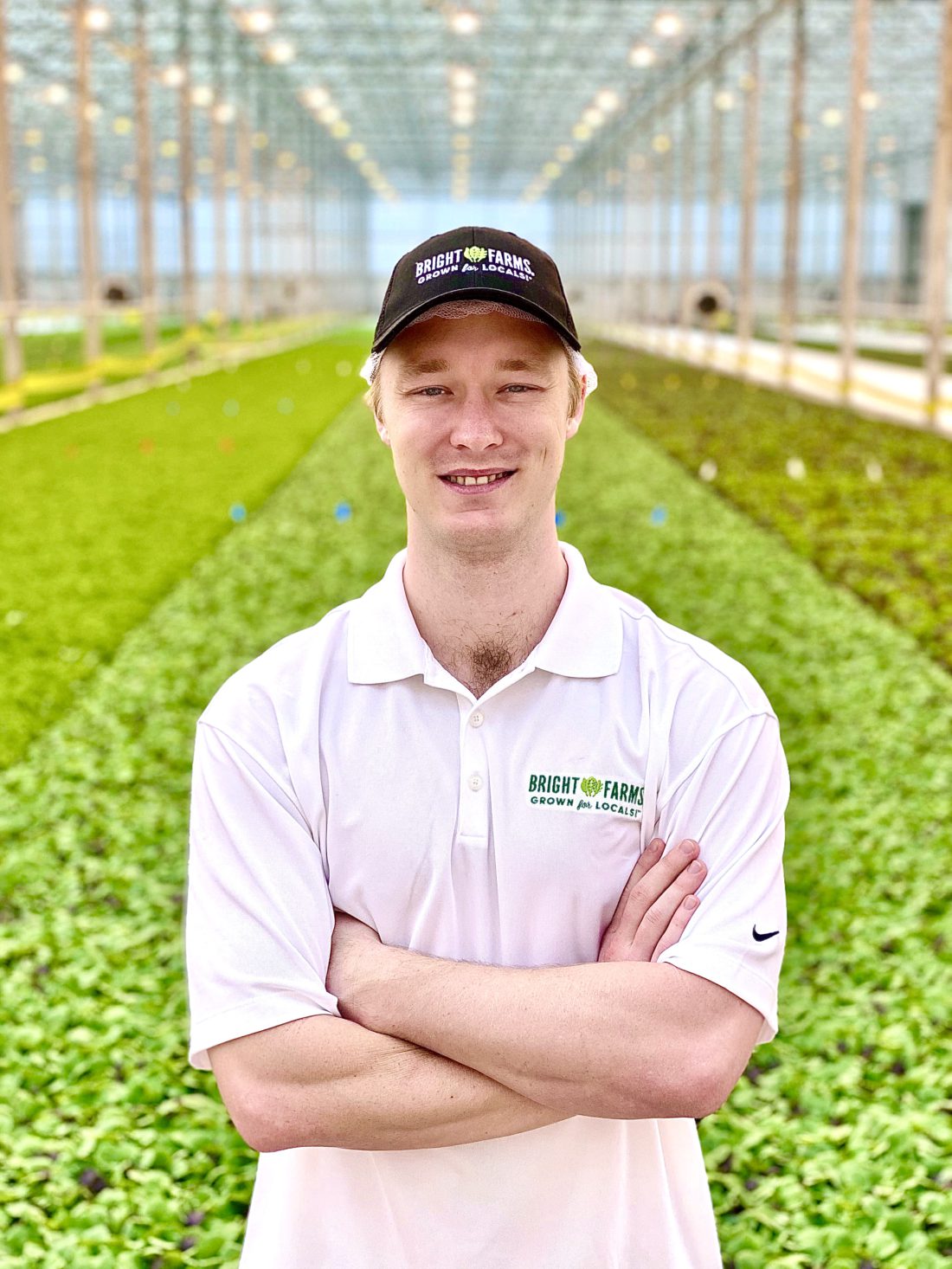March 25 was a green letter day in Henderson County. That morning, the first seeds were planted in BrightFarms’ newest greenhouse — a 280,000-square-foot structure where 55 “green-collar” workers will produce over 2 million pounds of leafy salad greens a year for the local market.
In April, BrightFarms is testing its systems, with the first couple of harvests to be donated locally; Western North Carolina retailers within a two-hour drive of the greenhouse will begin receiving products in May. “We’ll go as far east, for example, as the Charlotte area,” says BrightFarms CEO Steve Platt.
The 6-acre Hendersonville farm is the 10-year-old company’s fifth and its largest, most technologically advanced and most sustainable. Like many entrepreneurial ventures, BrightFarms began with one person studying a system and thinking it could be improved upon. In this case, it was company founder Paul Lightfoot.
Lightfoot had observed that the vast majority of leafy greens sold in almost 50,000 U.S. grocery stores are grown in California and Arizona, requiring at least a week of travel in the back of a truck to reach East Coast markets. Frequently, says Platt, those greens have pesticide residue, and more significantly, occasional E. coli contamination resulting in emergency recalls.
“Paul saw a system that had good intentions of feeding people but thought there had to be a better way to grow fresh and local without pesticides,” says Platt. “That’s when we started working on the idea of growing lettuce and leafy greens hydroponically inside greenhouses.”
The company spent a few years doing research and development before the 2013 launch of a concept farm in eastern Pennsylvania, where it worked on perfecting its four-step process: seeding, germinating, transplanting and harvesting. All BrightFarms products are non-GMO, pesticide-free, seeded on lightweight boards of nutrient- and mineral-rich soilless media.
Two days after seeds are planted, the boards are transferred to ponds of recirculated water within the glass-ceilinged, temperature- and humidity-controlled greenhouse where they float as the greens grow. After 14-21 days, the plants are fully grown and ready for harvesting and packaging.
The first of BrightFarms’ large greenhouses was erected in Culpepper, Va., in 2016 with a distribution area extending to Baltimore and Washington, D.C. That project set the company’s model for locating subsequent operations in agricultural areas outside the urban markets they service. Besides Virginia and now North Carolina, other farms are in Rochelle, Ill., Wilmington, Ohio, and Selinsgrove, Pa.
When the company decided to build a greenhouse in the Southeast to fill a hole in that area — and service one of its biggest retail partners, Food Lion — the Asheville region was identified for its climate, labor force and agricultural culture. Hendersonville specifically checked all those boxes.
BrightFarms grows several varieties of greens, including spring mix, baby arugula, baby butter, mixed greens, baby romaine, basil and baby spinach. Platt points out that the country as a whole is moving to healthier, fresher, more local and plant-based eating, and BrightFarms sees opportunity there for growth.
“If you can grow your own greens in your backyard, that’s fantastic,” he says. “If you have a local farmers market nearby to buy your greens, that’s great, too. We want to be the next best alternative by providing fresh greens grown by people in your community. The Hendersonville farm will be growing greens for years to come.”




Before you comment
The comments section is here to provide a platform for civil dialogue on the issues we face together as a local community. Xpress is committed to offering this platform for all voices, but when the tone of the discussion gets nasty or strays off topic, we believe many people choose not to participate. Xpress editors are determined to moderate comments to ensure a constructive interchange is maintained. All comments judged not to be in keeping with the spirit of civil discourse will be removed and repeat violators will be banned. See here for our terms of service. Thank you for being part of this effort to promote respectful discussion.